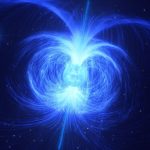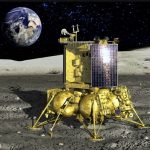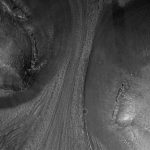What harm could one coal mine do? 1.7 million Hiroshima bombs of heat for...
This year, the Australian government rejected Clive Palmer's coal mine proposal—but approved three others.
Over 100 more fossil fuel projects are in the decision pipeline.
Why...
Is this how you get magnetars?
Imagine a living star with a magnetic field at least 100,000 times stronger than Earth’s field. That’s the strange stellar object HD 45166. Its...
Russia’s Luna 25 lander crashed into the Moon
On August 10th, 2023, Roscosmos’ Luna-25 mission launched from the Vostochny Cosmodrome atop Soyuz-2 rocket.
This mission was the first lunar mission to launch from...
Floating seismometers could help peer into the core of Venus
Seismology has been ubiquitous on Earth for decades, and missions such as InSight have recently provided the same data for the inside of Mars.
Understanding...
This small satellite could clean up space junk in record time
What if you could build a machine that helps clean up space on a budget?
A team of students from Brown University did just that.
Their...
Watch a giant exoplanet’s 17-year journey around its star in a 10-second video
Ever wondered what it would be like to watch a planet go around its star?
A scientist has made a video that lets you do...
This sure looks like the movements of a glacier across ancient Mars
It is a scientific certainty that Mars was once a much different place, with a denser atmosphere, warmer temperatures, and where water once flowed.
Evidence...
This Jupiter-sized exoplanet is unusual for several reasons
In a recent study published in the Monthly Notices of the Royal Astronomical Society, team of international researchers examined exoplanet TOI-4860 b, which is...
Neptune’s vanishing clouds linked to solar cycle, study finds
For the first time in nearly 30 years of observations, Neptune's cloud cover has dramatically decreased, and researchers think the sun's solar cycle might...
How extraterrestrial tales of aliens gain traction
One night, upon returning to the cave that his tribe calls home, the monkey-humanoid Moon-Watcher finds a strange crystal object, a kind of monolith...










